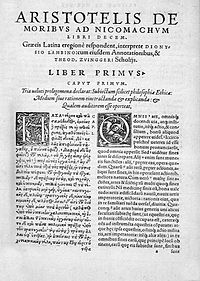
Photo from wikipedia
Abstract The primary goal of the present research was to investigate the association between trait anger and subjective pleasantness of rewards that differed in terms of evoked arousal. In the… Click to show full abstract
Abstract The primary goal of the present research was to investigate the association between trait anger and subjective pleasantness of rewards that differed in terms of evoked arousal. In the first study (n = 124), we assessed trait anger and liking rewarding cues related to either a high- or a low-arousal emotional response. To this end, we used Polish words from the Nencki Affective Word List classified as representative for happiness. In study 2 (n = 224), we extended this analysis by assessing individual differences in approach motivation and hedonism. The former was assessed with the BIS/BAS scales while the latter was measured with the Present Hedonism subscale from the Zimbardo Time Perspective Inventory. The results revealed that trait anger was positively related to liking rewards, and this relation was more pronounced for high-arousal stimuli. Moreover, reward responsiveness (BIS/BAS subscale) mediated the association between trait anger and liking both high- and low-arousal rewarding cues, while the role of hedonism was significant for liking high-arousal stimuli. The obtained findings demonstrate that in case of high trait anger individuals, the intensity of pleasant feelings associated with the reward might be a function of the arousal evoked by the reward.
Journal Title: Personality and Individual Differences
Year Published: 2021
Link to full text (if available)
Share on Social Media: Sign Up to like & get
recommendations!